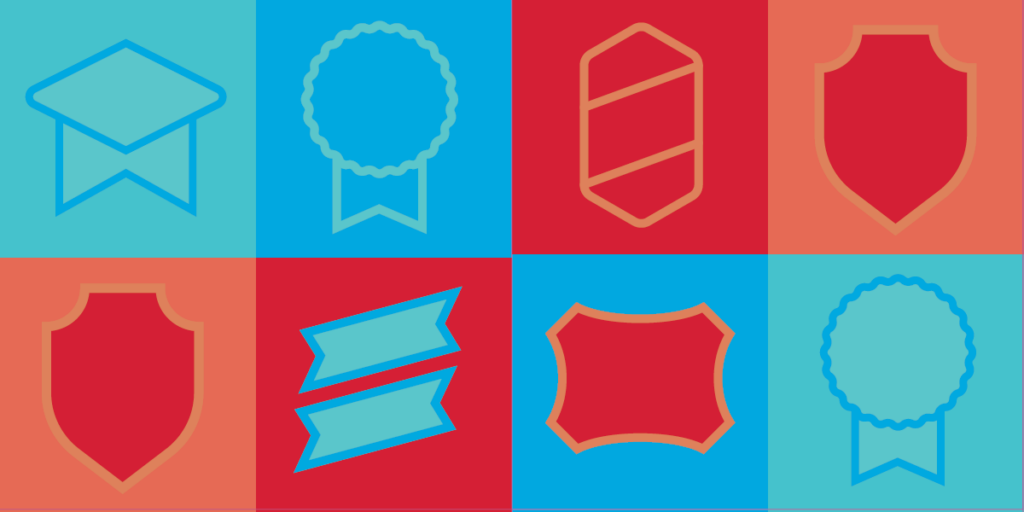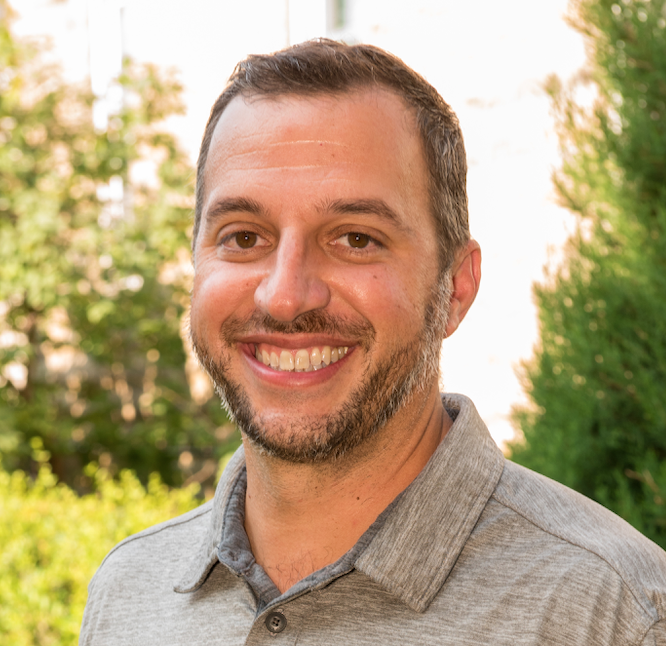I think K-12 education is truly about helping learners understand their passions, interests, and purpose — supporting them to form an identity and have real agency.
Marc Siciliano, Founder and CEO of Left Bank Consulting
We sat down with Marc Siciliano, Founder and CEO of Left Bank Consulting, to hear about his work with cross-sector collaborative models and how this informed his belief that ecosystems are our best path forward if we want all young people to have the agency to thrive in their personal and professional worlds.
Q: What drew you to the vision of learner-centered ecosystems?
Marc: The summer before my senior year of college, I interned in the Education Department at the Shedd Aquarium in Chicago. The department was focused on making the exhibits more relevant to students by supporting teachers to take better advantage of the resources the aquarium offered. This was such a great introduction to community-based learning, as I was preparing for my own teaching career.
I majored in biology and secondary education and as I began working as a classroom teacher, that work at the aquarium continued to inspire me. I invested in external partners to get my kids out into the community and community partners into my classroom.
There was a lot of trial and error, and many experiences were probably random and poorly designed, but as I progressed in school leadership — especially at the district level — these experiences became more formalized and structured. When I worked in New York City, we were designing schools with advisory boards of community partners who were intentionally thinking about how connectedness to community partners can ensure that everything the community had to offer permeated the walls of a school building. Everything. We were very strategic about the community connections back then, and this was in the early 2000s!
There’s so much research now to support cross-sector collaboration and ecosystem models of learning. I had the great fortune of helping dozens of communities design ecosystems with a specific focus on STEM, so I know what’s possible.
Q: What do you think taking an ecosystem approach can enable in education?
Marc: I think K-12 education is truly about helping learners understand their passions, interests, and purpose — supporting them to form an identity and have real agency. And, to do so with confidence because their learning trajectory was personalized.
Education shouldn’t be about simply preparing a student for the next grade level. It’s so much bigger than meeting standards and moving on. I say this with complete respect for standards. I certainly believe in them and know the importance of learning progressions, high-quality instructional materials, and sound pedagogical practices. I’ve built a career as a champion for all of it because there are specific needs that must come together for students to learn and progress across K-12. Curriculum, instruction, assessment, and leadership — all of it.
But, sometimes, we get so entrenched in the system that we forget the purpose of it all. I mean, I want students to graduate from K-12 with countless opportunities in front of them because they know who they are, they know their passions, and they are poised as leaders because of the amazing learning experiences they’ve had.
The reason for an ecosystem approach to education is to ensure that all kids have these opportunities and exposure to all sorts of learning experiences that you can’t introduce in a classroom setting alone. Educators play such a significant role in shaping the lives of young people, but why not bring in others, particularly experts in specific fields, to facilitate that process? It just makes sense to connect learning experiences in this way.
The currency of out-of-school learning is very different — sometimes there’s no tangible currency at all. The learning that happens after school, on the weekends, and during the summer is incredibly important, though, but isn’t recognized as such.
Marc Siciliano, Founder and CEO of Left Bank Consulting
Q: What’s a change that you think is vital to making a new system of education a reality?
Marc: The currency of learning in education needs to change. Dating back to the early 1900s, the currency of education has been based on the Carnegie Unit and seat time required to get a credit. This is further represented by students’ grades, transcripts, and GPAs. Of course, it’s all inflated by honors, AP, and dual-enrollment courses. These are the traditional measures — the currency of education — that have dominated the K-12 landscape. I’d argue they really don’t serve students well or measure what matters.
The currency of out-of-school learning is very different — sometimes there’s no tangible currency at all. The learning that happens after school, on the weekends, and during the summer is incredibly important, though, but isn’t recognized as such.
There’s been a movement within the last decade to offer micro-credentials and badges. It’s a way to acknowledge student competencies. When done well with clearly articulated pathways and stackable models, it creates a competitive edge for students and can even lead to industry certifications. There’s real promise here, but it’s a separate currency and exists, to some degree, despite the conventional system.
My sense, at least to start, is that we need to find ways to create a common currency of learning that is more of an outcomes-based currency. What do we want students to know and be able to do? What are the outcomes? How do we develop personalized learning plans for each student? If there’s one currency that recognizes what young people are learning, it doesn’t necessarily matter where it happens, whether it’s in a conventional school setting or not.
Learning happens anytime and anywhere in a community, and we need to connect those learning experiences in cross-sector ways for our kids to learn content and develop skills in customized and personal ways.
Q: How do you see learners developing agency in a stronger way through ecosystems?
Marc: Building on the idea of a common currency of learning based on outcomes, if learners have a way to showcase their learning, they can say, “This is who I am. This is what I know I can do. This is what I’m passionate about. And, here’s a portfolio of all this evidence that supports my interests and what I know I can do.” That’s agency from my perspective. A GPA doesn’t tell this story.
Real agency comes from experiences, too. Schools certainly shape students’ agency, but we’re limiting students’ potential if we don’t take seriously the experiences that occur in the community and make those as relevant and necessary as the classes our students enroll in.
What if we begin to imagine school in this way? I know how much I learn when I travel. Being in another city, witnessing another culture, and taking it all in — that’s powerful. Our kids need to get out, see the world, and hear diverse perspectives. They need to practice being in the adult world with their peers and have those contextualized experiences connect to learning outcomes and count as evidence of learning. That’s how they’ll develop agency!
Q: Why are learning ecosystems the next logical step to a new model of public education?
Marc: I’ve spent years immersed in cross-sector, collaborative models but feel like it’s still somewhat nascent in education. It’s gaining some momentum, perhaps because the pandemic forced new paradigms in education, but we’ve seen cross-sector work in other industries for decades.
There’s a lot of evidence in public health where different sectors, coupled with resources, function together — an ecosystem! But, ecosystems are still relatively new in education. And so, I think, we can look to other industries that work in cross-sector, collaborative ways for research and guidance. We can see what others have done and what other models are out there and give proper credit. I hope education can learn and borrow from that. I know this has informed our work at Left Bank Consulting. We’re not creating something completely from scratch.
I’ll close by sharing that an ecosystem approach to education certainly benefits the learners, which is critically important, but learning ecosystems have a reciprocal benefit for all stakeholders, too. Non-profit program providers will be more valued and better funded when their programs are leveraged in a student’s learning journey. Museums will integrate more naturally with K-12 teaching and learning. Higher education and employers will be more immersed in the design, coaching, and support of the learner pipeline for their own benefit. Communities will be more equitable with quality learning happening throughout and not designated to the most affluent zip codes. Everyone gains something in an ecosystem and, when designed properly, stakeholders will feel that sense of give and take.
A learning ecosystem can be truly transformative. Through our work at Left Bank Consulting, we’re helping communities shift from cross-sector conversation to cross-sector action through deliberate strategy efforts with a focus on impact. I’m confident that we’re just scratching the surface.

